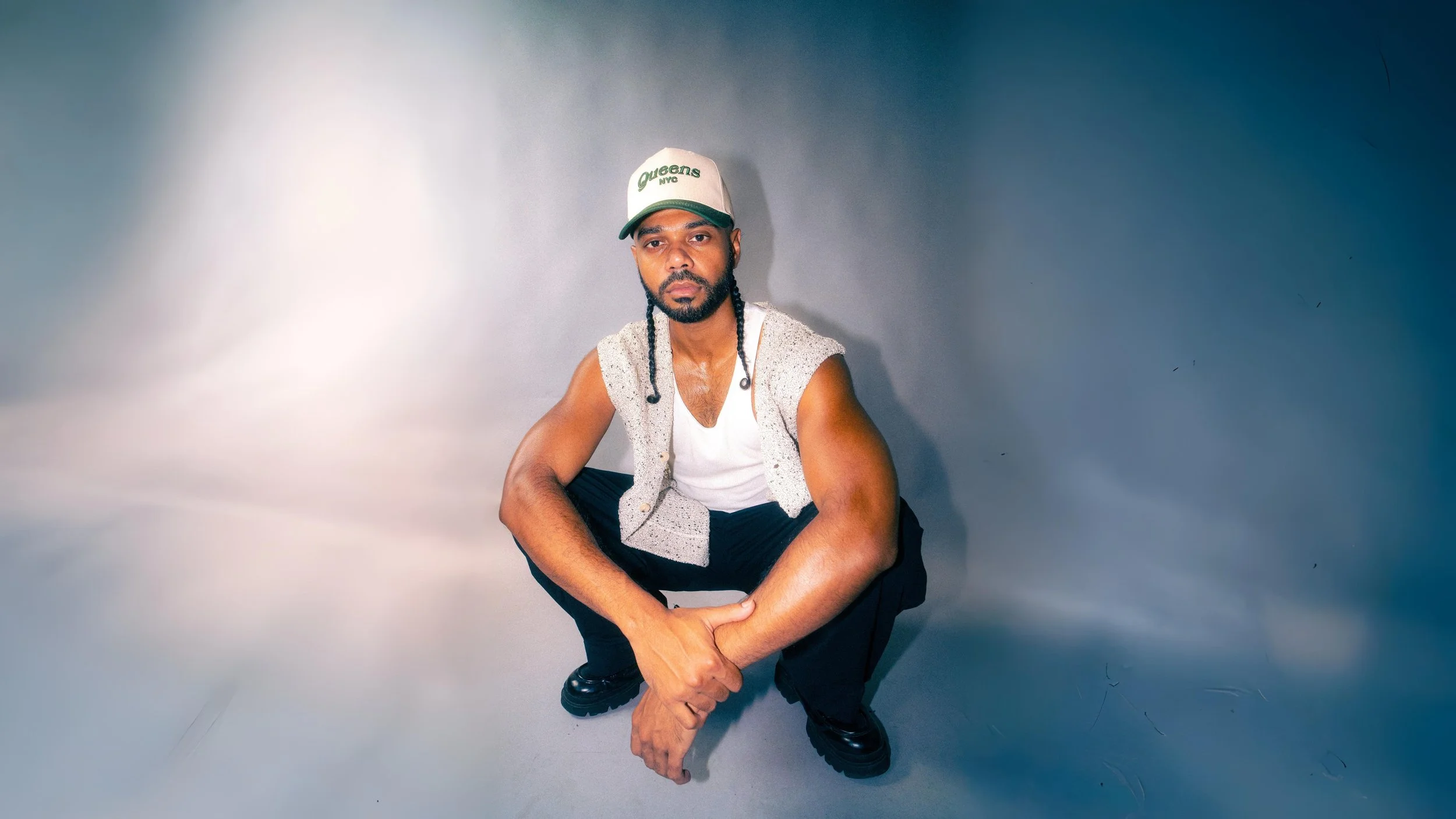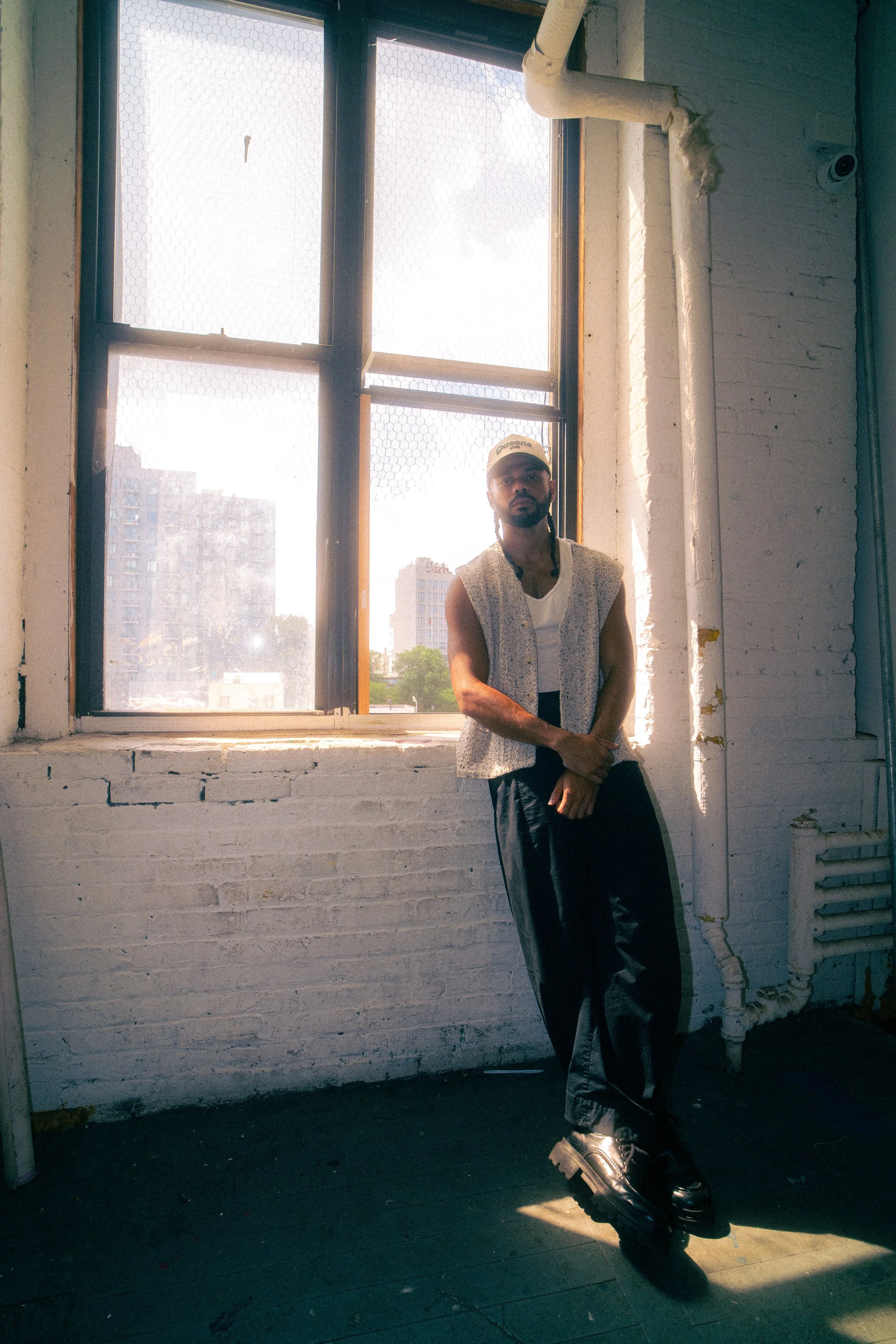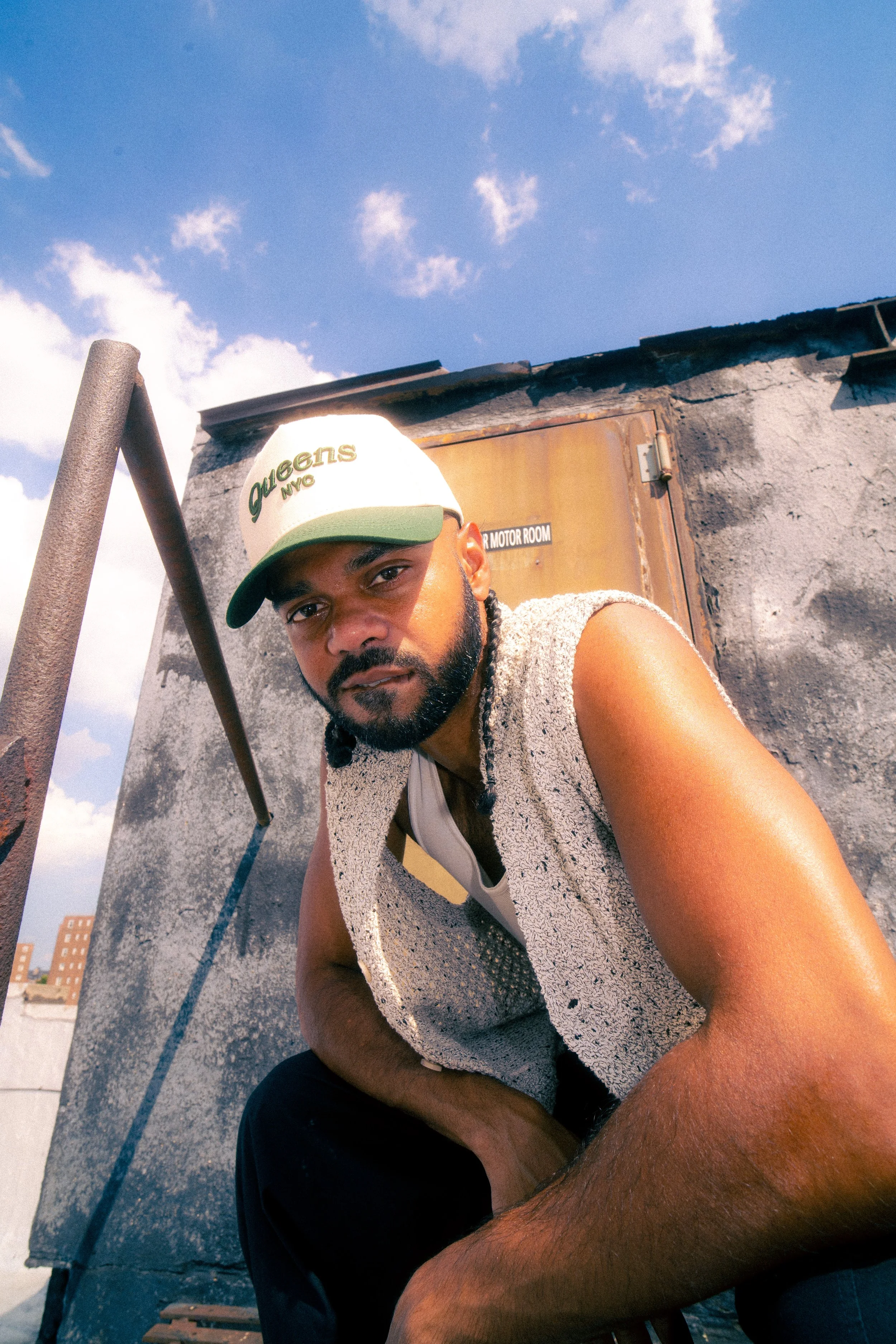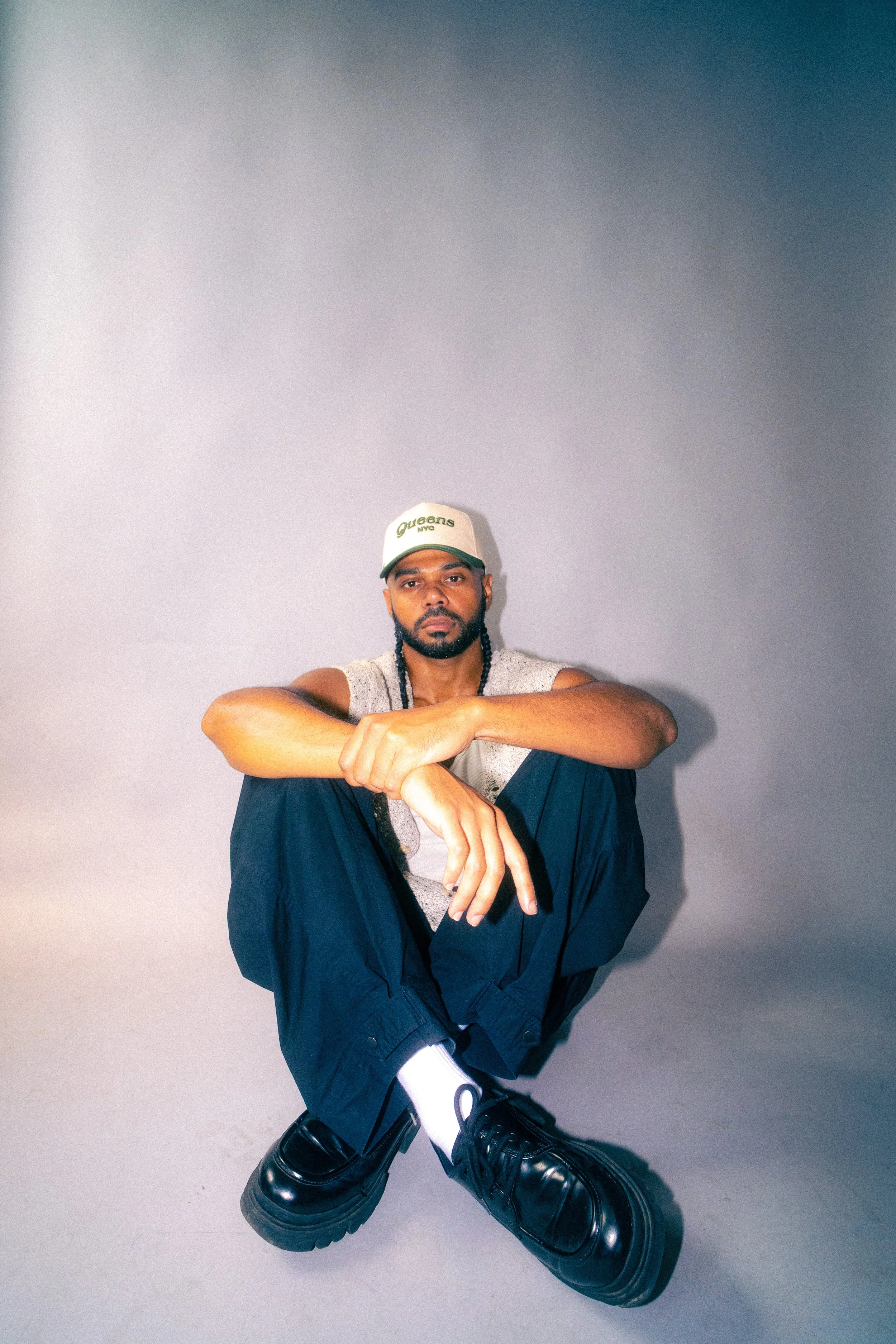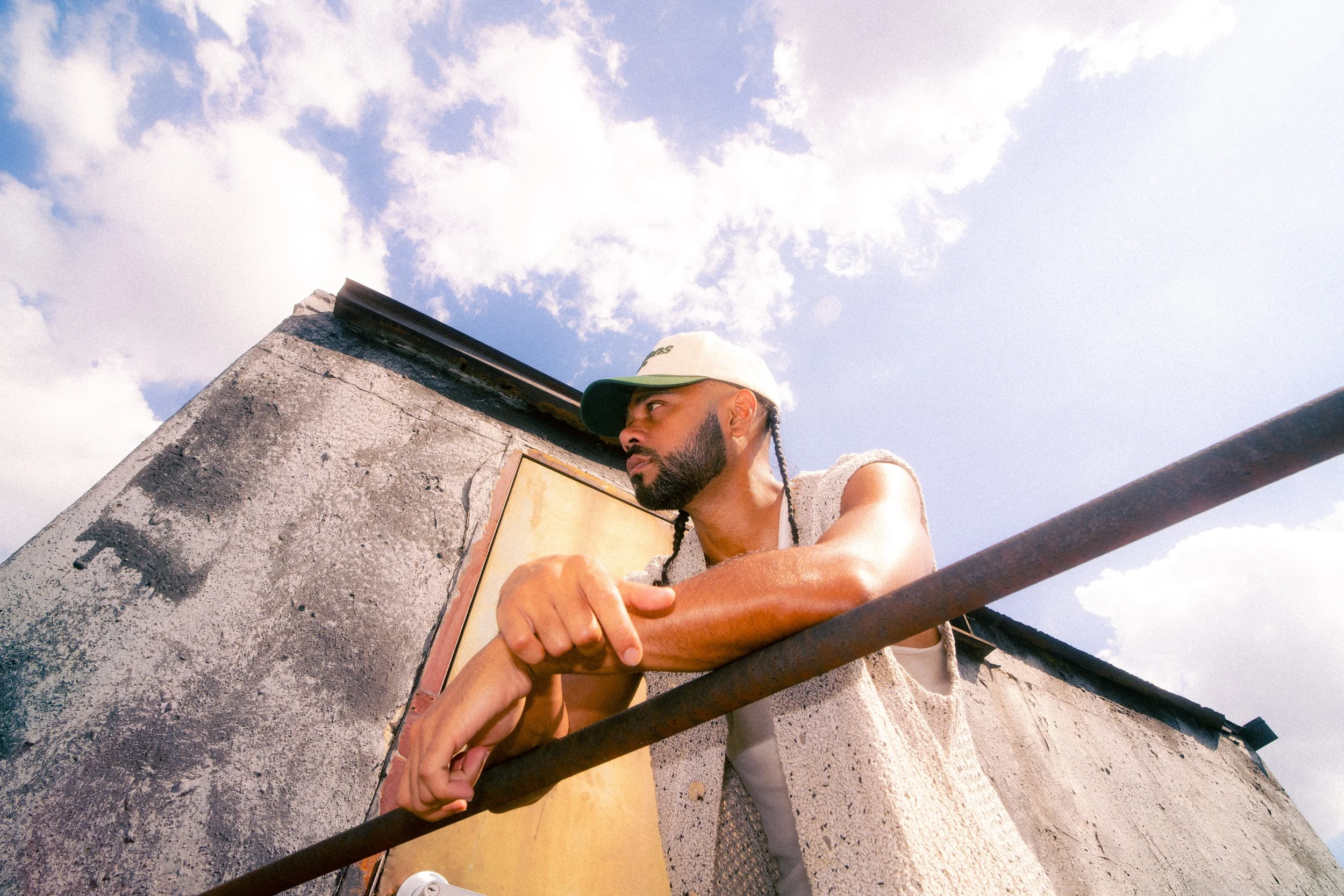Identity & Innovation: A Conversation With Anik Khan
Most successful artists understand that promoting their work never ends. Fresh off his listening party in collaboration with COLORS x STUDIOS, Anik Khan has been in go-mode, promoting the full release of his upcoming album Onēk. With the first half of the project released as an EP, Khan received a roaring reception for his complete work, meditating on identity, privilege, and the pursuit of one’s dream through their struggles.
With a release date scheduled for September 24th, and hosting the MENASA Sound System Outdoor Block Party for the Planet Brooklyn Festival, Khan has been more geared than ever not only to share his new work, but build his platform with like minded creatives. With that in mind, on a hot July afternoon, Khan visited the ARCHIV3 team at Scott Bleu Studios to shoot with Creative Director and Editor in Chief, Josh Sauceda. While doing so, he chatted with us about the album release, and what’s in store for the future.
Nik VRSI- You really curated a phenomenal event with COLORSxSTUDIOS. This is what people dream of. How do you feel?
Anik Khan- I feel really, really good, man. I feel it wouldn’t have happened without the team. That curation was a group, an amalgam of people. It feels good to make records, like, I worked on them for three years, and it’s good that people are finally listening.
NV- 1000%. That’s a funny thing. So much art, most people hear it years after it’s been in your head forever after it’s been made. Talk about the journey revisiting it, where it needs to be heard now.
AK- Well it’s funny. Once I finish making it, I don’t listen to it any more, on purpose, so I can have the excitement of speaking about it, and having the conversation about it. Even when we heard the record front to back, that day, that was my first time doing that in months. So it felt really good. Artists have to prepare themselves, knowing that they’ve held on to this for so long, and now that the people are listening to it, it’s the right time, and the right moment. You just kinda gotta trust the universe. Sometimes, I used to have the fatigue of “Oh, this is old now, what does that mean? I don’t want people to hear a song that’s two years old.” I’m at a different place now, but the beautiful part of where I’m at in my artistry now is that I stand so hard in my conviction, that each record, whether I made them now, or two years ago, or five years later, I’ll be just as proud, and want to share them just as much at that moment, in that time.
NV- I’d love to talk about that conviction. Let’s cut straight to it. You are a South Asian, Brown man that makes music in predominantly black spaces meaningfully and intentionally. There’s been a lot of unlearning in your journey, and work done to create the art you create. Can you talk about that journey?
AK- Yeah, that conviction, it’s still a journey, I’m still learning to have more and more of it. But I think it’s just about having awareness, and understanding that we are guests in this space, you know? I don’t wake up assuming “I should be here” and “I belong here.” To be able to wake up and make a song, and make money from it, you’ve already won in the world. That is a privilege in itself. There’s people out here really fixing limbs, and helping people get through depression, real work. Not to say that what I’m doing isn’t real work, but I know that it is a privilege, and I remind myself of that every day. I think that gratitude, and understanding that I’m in a space of black folks, and it's their hard work that allowed me to even have a platform to be able to retire my family. That’s something I don’t overlook, nor do I ever forget. They’re an inspiration, not to America, but to pop culture. There’s not one Asian or South American that can say “black culture did not influence.” They may not want to admit it, but they know. And I’m just one that does.
Our music column is powered by NEWM, an official sponsor of ARCHIV3.
NEWM is redefining what it means to be an independent artist — with decentralized tools that give you full ownership, creative freedom, and new ways to earn from your music without giving up agency. Join NEWM — the Web3 platform giving power (and profits) back to artists. Discover →
NV- And it’s intensely appreciated that you do. Because a for a lot of Desi Artists and people, many of us seem to align with whiteness, and one of the first ways to do so is by practicing anti-blackness in some very interesting and sometimes insidious ways. What helps you stay on point with yourself to know that, in every way, that you know your conviction?
AK- It’s funny, I’ve never thought about it like you, because I never grew up around white people (laughs)!
NV- That’s valid! (laughing)
AK- You know? So it’s interesting. That comes down to South Asian socioeconomics, right? So, if you look at New York, London, and Toronto, Bangladeshis are cab drivers. They work at Dunkin Donuts. They’re Uber carriers. Where do they live? How much of a living are they making? Where do they end up? They end up around people who are also labor workers in the city. I’ve never been adjacent to whiteness or even had to think about it. It was later in my life that I even knew Indians make money. I had no idea that they was getting bread like that. I was like “Oh shit! This is crazy!” I didn’t even know this was possible, but that’s fire! I think it just depends on where you’re from. I have strong convictions in my identity, because I’m from New York.
NV- Word.
AK- If you’re from Texas, you might not have that much conviction in your identity. You might want to assimilate more, and that’s your growth, your journey, and I understand why that might be the case for you. But when you’re from New York City, and you see Guyanese people love being Guyanese, and Dominicans love being Dominican, and Haitians love being Haitian, it’s almost impossible not to be like “why the fuck don’t I like being Bengali.” And that’s the only question I’ve ever asked myself. I wanna love my shit as much as Puerto Ricans love being Puerto Rican, and I think that’s just being a city kid.
NV- So, especially in making this project, what are some new things you found that you love about being Bengali in the creation of Onēk that you may not have known before?
AK- So I traveled to West Bengal, the Indian side of Bengal, which I’d never been to before. Our culture is so rich, and our history is so incredible. I got so much more into Baul music, which is music from the hills out there. Listening to these people sing their vocals from a very mountain-esque, prayer-esque place was crazy inspiration. I had never really heard nothing like that before, and traveling to Bangladesh and West Bengal, I got more and more into it. I got to see specifically what our fabrics are like compared to other parts of South Asia. I just got to deep dive more, which helped me. I think before I hyper focused on the South Asian experience, because me coming up, there wasn’t much of us anyway. And now it’s beautiful to see more and more South Asians, which now helps me hyper focus on the Bangladeshi part of it, which is beautiful. Because now, that inspired me to be like, “what about Bengalis are different and cool that I can utilize,” down to even fashion. My manager even helped me see this through. He was like “what are the things the rickshaw-wallas are wearing around their heads?” And I was like “kamchas?” He was like “shit is hard.” And I was like “you’re right.” I wasn’t thinking about that, because I was thinking about kurtas because that was more of a universal language for all of us. But the kamcha is specific for certain regions. And now that’s been a part of my fashion, and a part of my journey. So that’s one example of how I’ve gotten more into it.
NV- You’ve honed into things that make sense for you to source from that no one else that isn’t connected to it can really use in the same way.
AK- Right.
NV- So this project is exciting. One thing you’ve said is “Tradition Meets Tomorrow.” One thing we focus on at ARCHIV3 is where art and tech intersect. That was what started how this whole thing came together. In all honesty, I’d love for you to talk about that element, how your art has intersected with tech, because your audience is global. From the nature of the music, to how you collaborated with MUSHTAQ, a London based producer, and were able to make this seamlessly. Can you talk about how technology may have helped you connect to the nature of the music?
AK- Of course, man. Technology is a huge deal, you know? We’re not in an era where everything is recorded with tapes and shit like that. The art of sampling comes from technology. The art of having inspiration from other places. The fact that I could go to YouTube, hear about a song, download, pitch it down, pitch it up, do whatever the fuck I want with it with a VST. I would not be able to do that without tech, and that allows my creativity to have no bounds. Art has definitely had tech alongside it the entire time. And I just recently used AI as well in a very interesting way. We had a record where someone did the vocals, and we couldn’t use that vocal anymore. I tried many different people to do that record again, and I’m like “it’s not hitting the same.” And lo’ and behold, I made a friend who isn’t, like, a female singer, sing a part, because he was the best technical person I knew at the time when we recorded it. He goes, he sings it, we put it through AI, and it’s a woman. I was like “This is crazy, and this is fire, and I’m cool with that!” There’s obviously layers with the AI shit, and everyone has their pros and cons with it, but I thought that’s mad cool that I can utilize resources like that, and it still comes from a good place. It still comes from a breathing heartbeat, which is important for me. Compared to somebody else, it might not be, but it’s important for me. And to be able to see technology take that heartbeat further, that’s cool.
NV: But one thing I think that’s important about this conversation, especially, is that this was done with everybody being on the same page.
AK: Yeah.
NV: That’s really the key element, so props to using AI responsibly that way. Because people can be really predatory with it. That actually brings me back to the listening event, because you were so excited to shine light on every single person you worked with to the full capacity. How did you come to create a platform that was just as much about your community as it is you?
AK: I mean, community is all I really had. Being an independent artist is not easy. We’re at a point in music right now, where if you’re not an A-list artist, you’re everything else. And to be able to exist, to be able to support yourself, and to be able to create some kind of foundation, for me that comes from community. And so, I can’t forget. My community is who brought me here. My community is who helped me make music a career, to be able to pay my bills. Again, that awareness and gratitude doesn’t go away. And I’m not perfect, I’m a human being. That’s why I always talk about rebuilding and relearning. There have been points where I’ve checked myself. There have been points where I have been in over my head and thought things should just arrive to me, and opportunities should just land in my lap. And, I think aligning myself with the community reminded me that humility can make you stronger, and more connected.
With the first half of the project, Onēk, Part One, already available on streaming platforms, Anik Khan is set to reintroduce his artistry in full as the complete project Onēk drops September 24th.
[This interview has been edited for brevity and clarity]
Writing by Nik VRSI.
Photography by Josh Sauceda.

